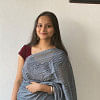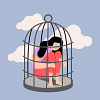Middle Child Myths, Debunked

With 17 solid years of experience of being a full-time middle child, I can safely tell you that I "suffered" more from assumptions about middle children than from actually being one. In fact, considering a lot of factors go into how your family treats you and the personality you develop other than just your birth order, most stereotypes that exist in society about middle children, often promoted by popular media, are either overly dramatised or downright false.
It's not uncommon to associate a resentful, troubled youth with a middle child. While it may come as a surprise, not all of us are envious of our siblings as portrayed by Edith Crawley in the mainstream British TV drama Downton Abbey. She was given a character extremely lacking in social skills, a quality contributing to the concept of middle child syndrome. Further promoting this concept is an entire episode of the American sitcom The Brady Bunch, where Jan, the middle child, wails in desperation for she feels she's always in her older sister's shadow. But the so called "syndrome" is not backed by any reliable scientific research. In fact, psychologists say many of the traits associated with it are likely a result, and not a cause, of these ideas.
Middle children are often perfectly capable of having strong bonds with their siblings, especially since they are closer in age to both the youngest and the oldest than the youngest and oldest are to each other.
An incident in the popular K-drama Reply 1988, where Deok-sun's parents accidentally leave her behind in a gas leak, but remember to carry their oldest and youngest children outside, is an irresponsible but extremely influential portrayal of the concept that middle children are unloved or least prioritised by parents. While it is true that the first-born provides the parents with beloved first experiences and the last may enjoy being the baby of the family, middle children possess some quality or other that their parents favour them for. It may be a distinct personality trait that is important to the parents, their talent at certain skills, or at least the virtue of being another one of their children.
Lisa Simpson from The Simpsons is just as steeped with stereotypes as she is popular. Her portrayal as the smartest, most creative, and most accomplished in the family at just eight years of age is over the top to the point that, in one episode, she's made the president of the US once she grows up. Emphasis of such ideas in pop-culture contributes to stigmatising middle children. Middle children themselves may feel a burden of expectations imposed on them, and when they do achieve success owing to hard work and ambition, they might face the misfortune of it being credited to their birth order.
In my opinion, fellow middle children should enjoy the intrigue they receive as their birth order is revealed in any given context, but avoid taking to heart assumptions about their personality or competence that come with it. It is quite a waste to disregard who you really want to be in order to adhere to some abstract expectations that may accompany your birth order. Preventing yourself from being a certain way for fear of aligning with existing stereotypes is equally damaging.
Conventional stereotypes aside, it's absolutely not biased when I claim that middle children are the coolest. If you are one, don't let anyone else's idea of you confuse you, and remember to believe in your own aspirations, they are bound to be cool.
Amrin Tasnim Rafa is always confused, it's literally her dominant personality trait. She challenges you to find something she won't think is confusing. Try your luck at [email protected]

 For all latest news, follow The Daily Star's Google News channel.
For all latest news, follow The Daily Star's Google News channel. 








Comments